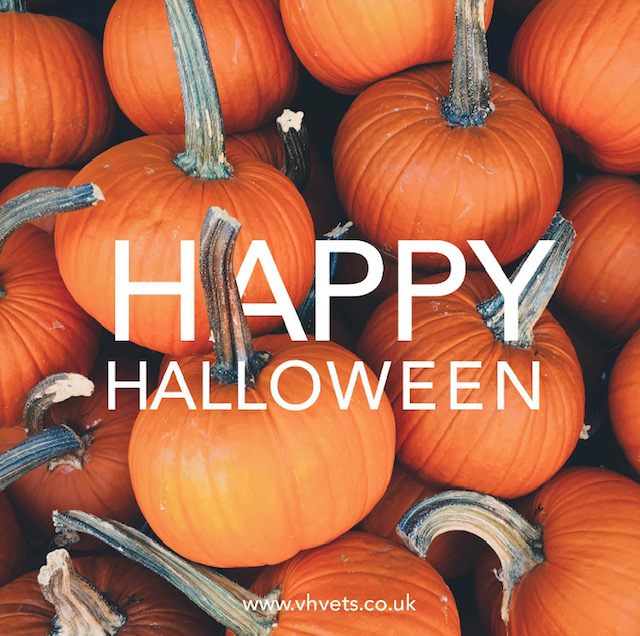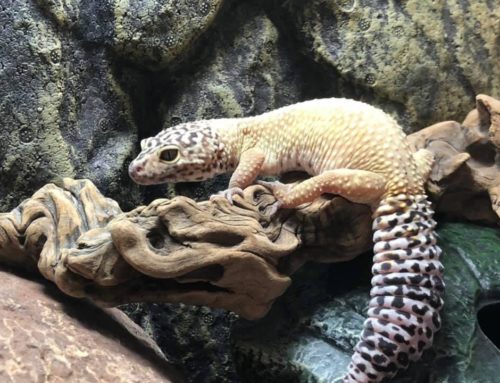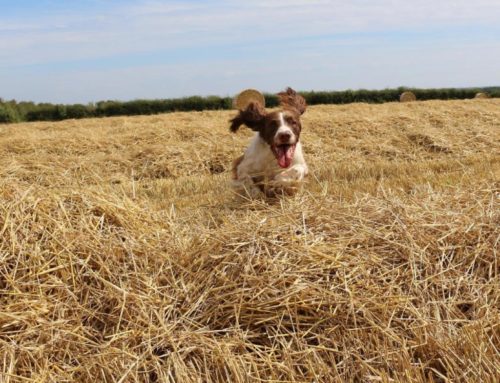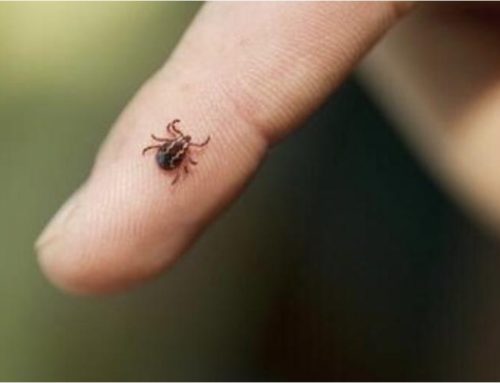 “Please be considerate…someone in your neighbourhood is afraid of fireworks”
“Please be considerate…someone in your neighbourhood is afraid of fireworks”
Fast approaching is that time where the sky will be lit up and the loud bangs heard for miles. An estimated 45 per cent of dogs in the UK show signs of fear when they hear fireworks.
Let’s have a little look at what firework phobia might look like for your pets and how we can help them.
Signs of stress in pets
Dogs:
- Trembling and shaking
- Clinging to owners
- Excessive barking
- Cowering and hiding behind furniture
- Trying to run away
- Going to the toilet in the house
- Pacing and panting
- Refusing to eat
- Destructive behaviour (chewing furniture etc.)
Cats:
- Cowering and hiding behind or on top of furniture
- Trying to run away
- Going to the toilet around the house, instead of outside or in their litter box
- Refusing to eat
- Rabbits:
- Stamping hind feet
- Staying motionless
- Trying to escape
- Eating less
What should I do to help keep my cat or dog calm during fireworks
Take your dog for a walk before dark, well before fireworks are due to begin, to avoid scaring your dog. Keep your dog on lead if there is any chance that they may be frightened by fireworks and bolt.
Keep doors, windows and cat and dog flaps closed.
Draw the curtains and have the television or music playing.
If your pet prefers to go away and hide, let them. Leave them alone – this is your pet’s way of coping.
If your pet seeks reassurance from you in stressful times, comfort them as you would normally.
Stay calm. Keep your tone, mood, and behaviour as normal as possible. If you get very anxious or comfort your pet more than usual, this can make your pet more unsettled. Never punish your pets. It’s not their fault they’re scared, and it adds to their anxiety.
Ensure your pet is microchipped and your details are up to date – if they run away from home, there is more chance you will be reunited.
Discuss with our team the use of calming products to help settle your pets. These include over-the-counter pheromone sprays and plug ins along with supplements to promote relaxed behaviour. There are also prescription medications available to help pets with more severe firework fears. Depending on your pets medical history and when they were last seen, you may need a vet appointment for us to dispense these, so try to contact us ahead of time.
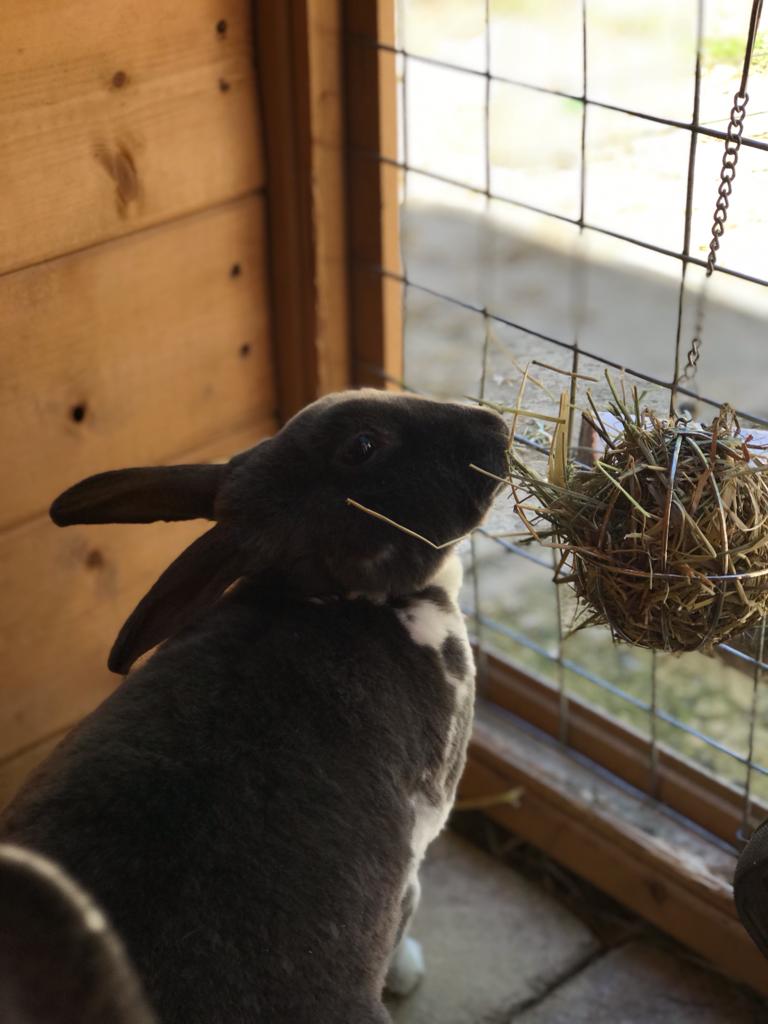 Let’s not forget about our small furries
Let’s not forget about our small furries
Partly cover hutches and outdoor cages with blankets, so they’re more sound-proofed but still well ventilated. If your rabbits or guinea pigs live outdoors, then it’s good to move the hutch into a car-free garage or shed a few nights before fireworks are expected.
- Make sure your pets have hiding places and secure areas where they can feel safe.
- Give plenty of bedding – this helps keep noise out and provides a hiding place.
- Ensure the bonfire is nowhere near any pets and smoke isn’t drifting towards hutches.
Behavioural training
We are incredibly lucky to have the wonderful knowledge of our inhouse behaviourist Miriam Prior who would like to offer the following advice …
“The firework season can be a scary time for many of our pets, and a difficult time for owners worrying about what best to do.
As well as the advice above, it can help to provide a “safe haven” for your pets – a covered bed that is insulated from noise (you can use a dog crate covered with a thick duvet, or build your own “den”). You should do this now, placing treats in there from time to time, so that your pet enjoys spending time in this safe space well before fireworks night. You should never force your pet to use this space or shut them in here – if they would prefer to be with you, that is also fine and you should interact with them and comfort them as normal. If possible, stay in on fireworks night and do something fun, such as watching a Disney film, so that your pet can see that you are relaxed.
Ahead of next year, take a look at the Sounds Scary programme from Dogs Trust. This is completely free, and is best started around March, to give you loads of time to get ready for next year. The most important thing about “desensitisation” is to keep the volume quiet enough that your dog is never worried during this training, instead feeling happy and relaxed whilst the noises are playing: if you are unsure, speak to us about getting help with this.
If your dog or cat is older, and is experiencing firework fears for the first time, this can be a sign of other underlying problems, such as arthritis. Musculoskeletal pain is often associated with noise fears because the “startle” reaction becomes painful, and so, to the animal, it seems as though the noise has caused pain. If this describes your pet, book in a vet appointment for an examination as there are lots of thing we can do and suggest to help your pet feel more comfortable.
If your pet is scared whilst the fireworks are ongoing but returns to normal shortly afterwards, then there is a licensed short acting medication that any of our vets can prescribe to help your pet on the night. If your pet shows a longer duration of behaviour change, for example being scared of the dark, or unsettled consistently from November to February, or if they become scared of lots of different noises, then it would really help to consider a behaviour consultation.”
For further information please head to Pet Behaviour Vet – CCAB
